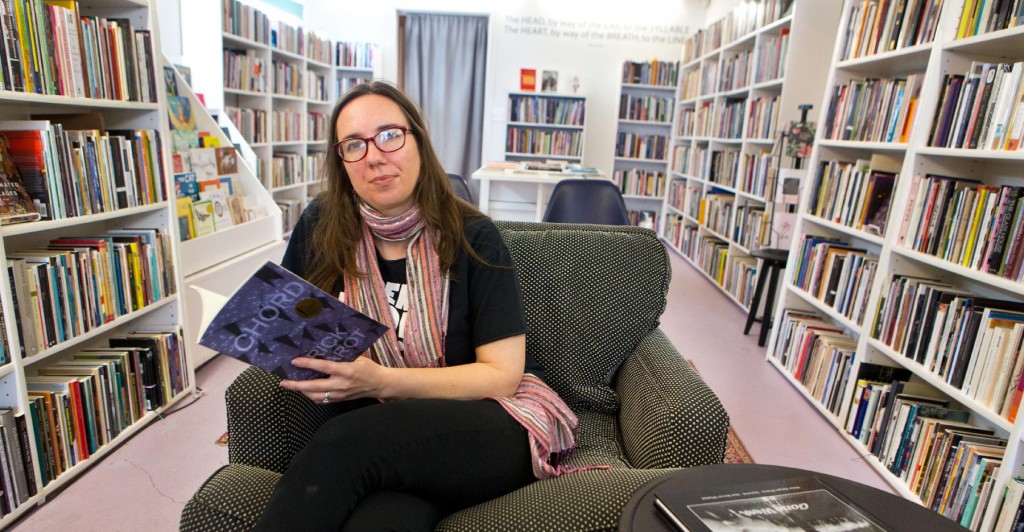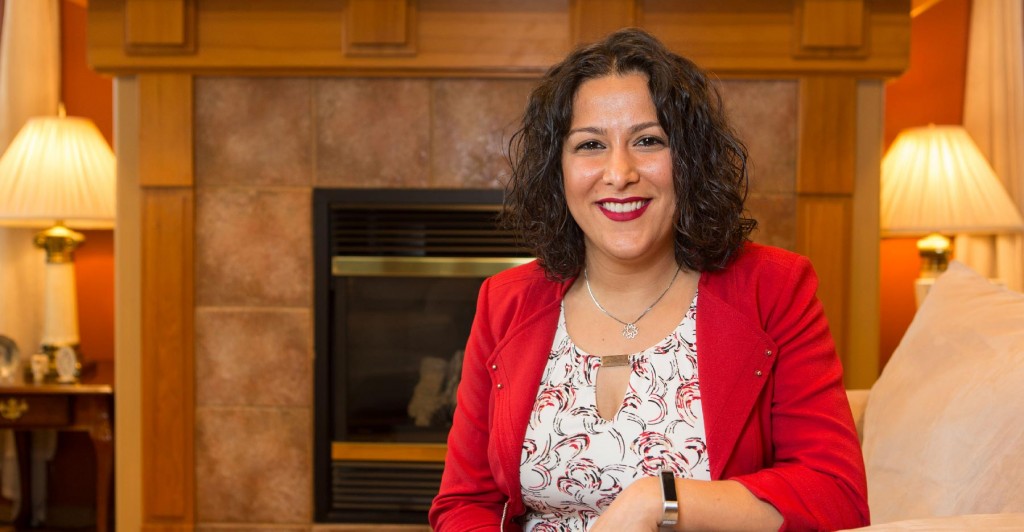Page 487 • (4,879 results in 0.075 seconds)
-

from your experience as a student to your perceptions of PLU today. In this issue of ResoLute , we begin our series sharing highlights of the valuable feedback from Lutes across our community. We plan to use your input to evolve our alumni and student engagement programs. Responses show that alumni feel overwhelmingly positive about the experience they had at PLU. They praise the high quality of teaching and learning, express strong connection to their “academic homes,” and most enjoyed a strong
-
intimidating, and you’re responsible for everything — whether it’s on the syllabus or not. While you may not have your family’s personal experiences to fall back on as a first-gen, many of the people teaching you understand where you’re coming from. Roughly 60 faculty and staff members across campus were first in the family to attend college just like you (look for them proudly wearing their buttons that say so). Speaking up to them about your experience could help ease the fear of the unknown. (And, to be
-
lot from being a member of the API Club. It created a domino effect that later resulted in pursuing leadership roles in other areas of campus, including Student Involvement and Leadership, ASPLU and Residential Life. My experiences at PLU led me to a career of more than 11 years in higher education coordinating multicultural programming and working directly with students of color. I’m no longer in higher education, but I continue to work in the nonprofit world serving the local community and
-

opportunities for professional advancement, teaching jobs and more. The program culminates in student manuscripts — ranging from compilations of poems to collections of short stories to novels — and many of the students’ works are eventually published. But beyond that, they leave with the network and the confidence to pursue writing their way. “Your tool kit should feel really heavy, in a good way,” Barot said. Swift’s tool kit is overflowing, and she’s using it to share poetry with everyone. Because poetry
-

and the outlying areas, so they rotate (the water) through the districts,” he says, raising his voice over the growl of the drill. Did You Know? 82% of the population of Nicaragua lives on less than $1 a day. 30% of the population of Nicaragua does not have access to clean water. 63% of the population of Nicaragua does not have access to adequate sanitation. * Data provided by Living Water International Day Two: El Limonal, Nicaragua Church Courtyard Drill Depth: 150 Feet T he pump has broken down
-

, teaching life skills and empowering young people. She also taught English classes privately out of her home. “I had a strong desire to serve my country and people,” she said. “Through our educational work, I learned that I needed to know more about family dynamics in order to be more effective serving this population. … I came to a conclusion that marriage and family therapy could provide me with skills and expertise needed.” After two years of research, Sabet-Kazilas applied to roughly 20 programs in
-
in South Hall common areas (hallways, lounges, etc.) is prohibited. Alcoholic beverages are only permitted in South Hall common areas as they are being transported to an apartment where alcohol is permitted. Possession and/or consumption of alcohol in a unit is permitted if all assigned residents of a unit are 21 years of age or older. In units where alcohol is permitted, all guests present when alcohol is open must be 21 years of age or older. Prior to permitting alcoholic beverages in a unit
-
his white roommate. And Wallace also knew that both Pacific Lutheran University students likely viewed the narrative behind recent cases of police brutality differently, as a result. He used their conversation about the nation’s racially charged incidents as a teaching moment for his roommate, who Wallace says never needed to think about how their upbringings contrast. “We’re taught two different things when we’re growing up,” Wallace recalled explaining to his friend, who he fondly calls “the
-
recruiting academically qualified faculty. She was a devout Christian who had the assurance of eternal life. She was an active member of the Lutheran church wherever she lived, worshipping regularly, teaching Sunday school and Vacation Bible School, and participating in Lutheran League activities, singing in the choir, and serving on various committees and councils. Her strong Christian faith and love for the Lord guided and sustained her throughout her life. Dr. Stucke is survived by nieces Doris
-
Earth self-identify as religious. It would be unfortunate, if not foolish, to overlook that statistic. Many of the people you and I encounter in life are part of that large number.” Torvend, the son of a Lutheran pastor and a priest in the Episcopal Church, has dedicated his career to PLU, teaching here for the past 21 years. He serves PLU in multiple ways. He is a professor of the history of Christianity, and has served twice as the director of the Wild Hope Center for Vocation as well as its
Do you have any feedback for us? If so, feel free to use our Feedback Form.


